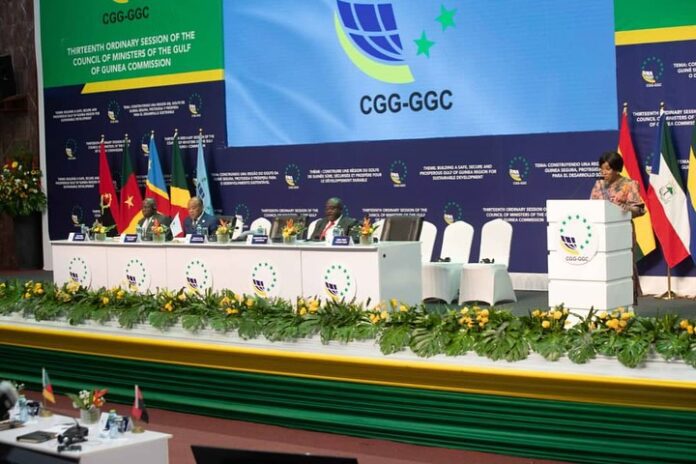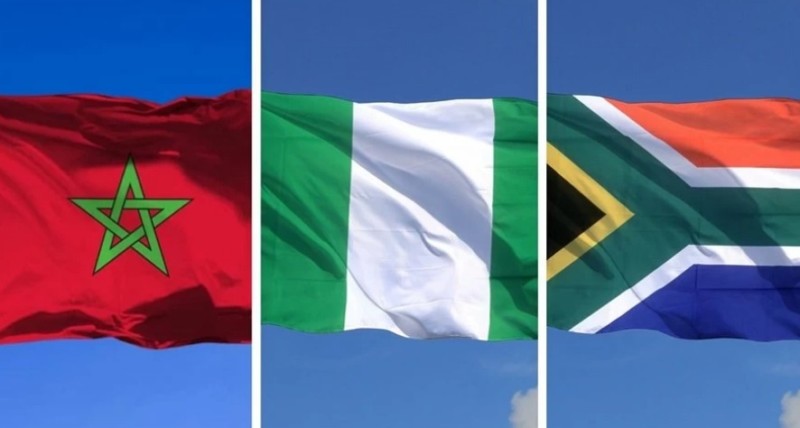How to coordinate maritime security and resource exploitation among nineteen states, covering more than 6,000 km of coastline from Angola to Senegal?
This is the challenge to be addressed from May 28 to 30, 2025, in Luanda (the capital of Angola), by the Gulf of Guinea Commission (GGC) during a workshop that will culminate with the launch of the « Blue Economy Action Plan » for the region.
Around fifty participants with diverse backgrounds will attend: representatives of member states and regional organizations, partners, private operators, national, continental, and international experts, as well as members of civil society associations. They will analyze, on behalf of the GGC, the contemporary concept of the « blue economy, » which, beyond fisheries and marine resources, encompasses the sustainable exploitation of all activities taking place in and around the oceans: oil, gas, mining, transport, research, renewable energy, tourism, and more.
The stakes are clear for the prosperity of states and the well-being of populations, alongside pressing issues of maritime and land security. The Gulf of Guinea region is particularly concerned because, according to reliable estimates, it contains significant oil reserves representing approximately 35% of the world’s total reserves, as well as other precious minerals such as diamonds, tin, bauxite, manganese, and cobalt. Furthermore, the area suffers severely from IUU fishing (« Illegal, Unreported, and Unregulated » fishing), mainly conducted by highly modern foreign fleets, sometimes armed with heavy weapons.
THE ACT OF JULY 3, 2021
To pool their efforts and urgently safeguard their common interests, several countries in the region took initiative. This led to the signing on July 3, 2021, in Libreville (Gabon), of the Treaty establishing the Gulf of Guinea Commission (GGC). Five states signed this founding document: Angola, Congo, Gabon, Nigeria, and São Tomé and Príncipe. Luanda was chosen as the headquarters. Between 2008 and 2017, four other countries joined the institution: Cameroon, Democratic Republic of Congo, Ghana, and Equatorial Guinea. According to the Executive Secretariat, negotiations are promising for the accession of ten other nations (Benin, Cape Verde, Côte d’Ivoire, Liberia, Gambia, Guinea-Bissau, Republic of Guinea, Senegal, Sierra Leone, and Togo).
This political cooperation mechanism ultimately covers parts of three African integration regions consisting of coastal countries: ECCAS (Central Africa), ECOWAS (West Africa), and SADC (East and Southern Africa). Representatives from all nineteen countries are invited to the workshop in late May in Luanda. Each will present the current state of blue economy development in their country.
“JOINT ACTION PLAN”
These contributions, combined with inputs from various invited experts and authorities, will form the basis of a « Joint Blue Economy Action Plan for the Gulf of Guinea region. » This document will be consolidated and refined before being submitted to the Conference of Ministers and then ratified at the Summit of Heads of State and Government of the GGC (currently chaired by Ghana). The previous Summit was held in Accra on August 6, 2024, under the theme: « Building a Safe, Secure, and Prosperous Gulf of Guinea Region for Sustainable Development. » It emphasized support for redefining priorities to focus GGC strategies on strong, cross-cutting actions: protection and security; sustainable development; and environmental protection.
Furthermore, proposals to ministers and heads of state will address diversifying GGC funding sources, which currently come solely from member states — whose multiple constraints have resulted in numerous arrears and payment delays.
Source: newsducamer



